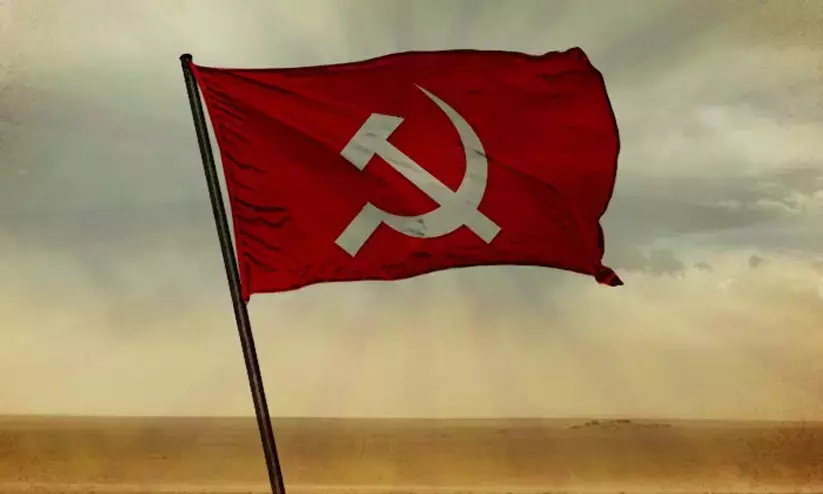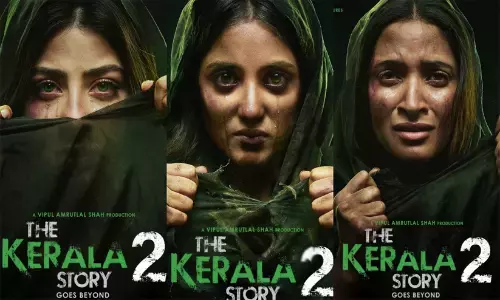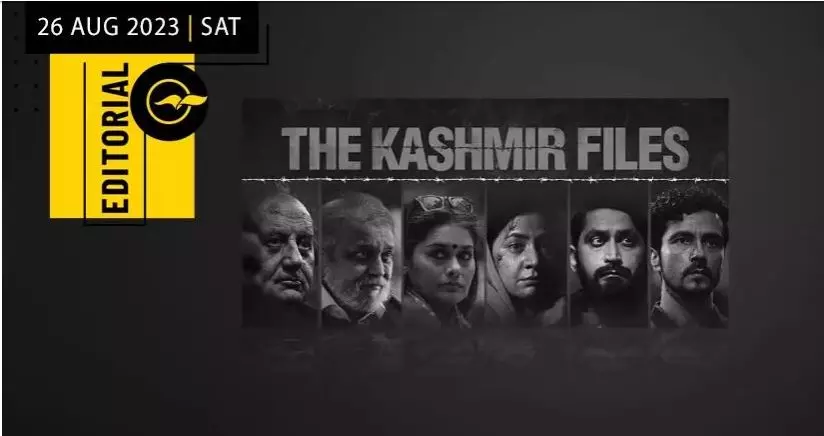
Are these calls for genocide national integration?
text_fieldsRarely do the announcement of the National-State Film Awards happen without the accompaniment of controversy. Just like how even after rain subsides, rain from trees will continue, even after the announcement of awards, controversies will continue such as deserving movies or filmmakers were unfairly overlooked or that jury made evaluations with partiality. Following the dismissal by the Kerala High Court of a plea that had sought cancellation of this year's Kerala State Film Awards, the film director has approached the Supreme Court seeking intervention. Apart from this, discussions and debates continue through news conferences and in the media, both in favour of and against the awards, with various stakeholders expressing their opinions. These discussions and controversies are still ongoing. There was a jury member who questioned why other films should be considered for awards when there is a particular film that was produced on such a huge budget and who also admitted to never having seen many of the films that were submitted for awards. In addition, , there was another jury member who said to a non-Keralite jury member, who stood and clapped after witnessing Kalabhavan Mani's performance in the film 'Vasanthiyum, Laskhmiyum Pinne Njaanum' that there was no significance in it as Mani was a street performer. However, the announcement of the 69th National Film Awards seemed to beat these controversies.
Some have assessed the recent award announcements as a response to the criticism that South Indian films were being overlooked. They point out that the awards for the best movie, best actor, and popular movie categories have been given to South Indian-centered films, supporting their argument. Not only 'RRR' and 'Pushpa,' but also other socially and politically significant films, including Malayalam movies, have made a waves on the silver screen. Many Tamil films like 'Jay Bhim', 'Karnan', 'Sarpatta Parambarai', which boldly depict real-life situations and address social issues in Indian society. But these films, which either deal with caste-related problems or highlight the struggles of marginalized communities, have not received any space in the award lists. The criticism that these movies have been altogether neglected can be parked for now. However, by awarding the National Integration Award to 'Kashmir Files' which Nandav Lapid, the Chairman of the International Jury at the 53rd International Film Festival had called "a very crude, manipulative and violent propaganda film", the Central government has turned the national awards into an undiluted political obscenity. It should be noted that the same awards had the honour of being conferred on films like K. S. Sethumadhavan's 'Achanum Bappayum' and MS Sathyu's 'Garm Hava' It is also a clear example of how the Central government is driving its vested agenda which infected not only the education sector, but cultural institutions like SAhitya Akademi.
Filmmaker Vivek Agnihotri's 'The Kashmir Files' is a depiction of the sinister ideologies of Hindu right-wing groups concerning the issues that have devastated a generation in Kashmir and the enduring militancy problem that has remained unsolved for decades. People may not have forgotten that the Prime Minister and other Central ministers had been competing to promote this film, although the director did deny it during a press conference which he called off mid-way. Granting tax exemptions and off days to watch the film is how the BJP Chief Ministers showed their support for Agnihotri's 'artistic creation' . The violence and looting during the Ram Navami and Hanuman Jayanti that followed the same year targeted Muslims were the aftermath of the anti-Muslim slogans raised inside the theatres showing this film. The hate-mongering slogans that were heard in theatres can be heard in mob killings that are happening across the country. Beyond this, there is an incident where a railway police officer, beyond the scope of his duty, caught and brutally killed Muslim passengers by handpicking them. In this context, the role played by the film and similar cinematic narratives in such acts need to be thoroughly investigated.
It may not come as a surprise that the BJP government dared to present a peace award named after Mahatma Gandhi to Geetha Prasanna, who stood firm against Gandhi's principles. Similarly, awarding a prize in the name of Nargis, an exceptional actress in the Indian film industry known for her work in promoting religious harmony and societal welfare, to this divisive film might not astonish many. However, the government should not hesitate to clarify their true intentions behind the term "national integration."























